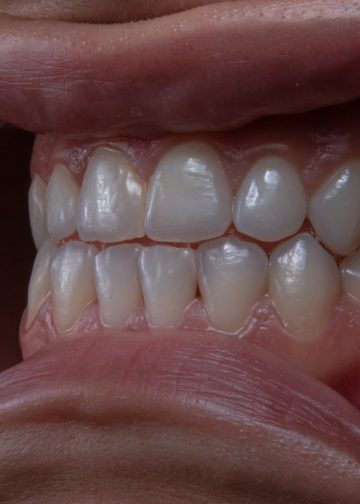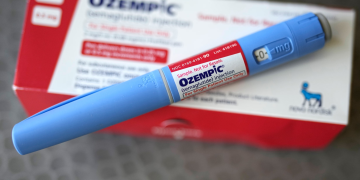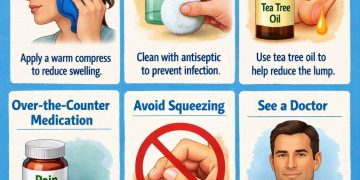Hospitals are critical in managing and treating patients with complex and life-threatening medical conditions. From heart attacks to strokes gunshot wounds to infectious diseases, hospitals provide specialized care and treatments to ensure the best possible patient outcomes. This article will explore how hospitals excel in managing critical health cases, beginning with an overview of what constitutes a critical health case. We'll examine the importance of effective management, including state-of-the-art diagnostic tools and specialized care teams. Finally, we'll explore hospitals' various practices and procedures to ensure exceptional care and outcomes for those facing the most challenging health issues.
1. Team-based Approach

A team-based approach to patient care is one of the key strategies that hospitals use to excel in managing critical health cases. This approach involves a multidisciplinary healthcare team of various healthcare professionals, each with a specific role and responsibility in patient care. For instance, the team might include physicians, nurses, pharmacists, respiratory therapists, and other healthcare professionals as needed. Each team member brings unique skills and expertise, working collaboratively to provide the best possible care for the patient.
Communication and collaboration are critical components of this approach. The team must work closely together, regularly sharing information, updates, and treatment plans to ensure streamlined and efficient patient case management. Open and effective communication is essential for preventing errors, reducing the risk of complications, and ultimately achieving the best possible patient outcomes.
Some hospitals also utilize specialized care teams specifically trained in managing critical health cases, such as intensive care unit (ICU) teams, emergency department (ED) teams, and rapid response teams. These specialized teams work seamlessly alongside other healthcare professionals to provide comprehensive, patient-centered care. Hospitals can offer patients the best possible care and the greatest chance for a positive recovery through a team-based approach. To ensure you get the best care, consider visiting Idahofallscommunityhospital.com or similar sites.
2. Advanced Diagnostic And Treatment Options
Hospitals' ability to excel in managing critical health cases is heavily reliant on advanced diagnostic tools and treatment options. These advancements have revolutionized how medical conditions are diagnosed and treated, improving patient outcomes. Hospitals invest in state-of-the-art technologies and equipment to ensure accurate and timely diagnoses.
Advanced diagnostic tools such as MRI, CT scans, ultrasound, and genetic testing allow healthcare professionals to precisely identify critical health conditions. These tools provide detailed insights into a patient's condition, enabling healthcare teams to create targeted treatment plans. Early and accurate diagnosis is paramount in critical health cases, as it can significantly influence the effectiveness of treatment interventions and ultimately improve patient prognosis.
In addition to sophisticated diagnostic tools, hospitals excel in providing cutting-edge treatment options for critical health cases. Medical research and technological advances have paved the way for innovative therapies, medications, and surgical techniques. From complex surgeries to targeted medication therapies, hospitals leverage these treatment options to address critical health cases effectively. Furthermore, hospitals actively engage in clinical trials and research studies to explore and implement emerging treatments, ensuring they remain at the forefront of medical advancements.
3. Specialized Critical Care Units
Specialized critical care units are central to hospitals' ability to excel in managing critical health cases. These units are specifically designed and staffed to provide advanced medical care to patients with complex and life-threatening conditions. Hospitals invest in creating specialized units, including intensive care units (ICUs), emergency departments (EDs), and other specialized critical care units, to ensure patients receive the necessary care.
Intensive care units have state-of-the-art equipment and technology, allowing healthcare professionals to provide advanced care for critically ill patients. These units are staffed by highly trained healthcare professionals, including critical care physicians, nurses, respiratory therapists, and pharmacists. The infrastructure of ICUs is designed to provide a high level of patient monitoring, facilitating rapid intervention in the event of adverse reactions, complications, or other emergencies.
In emergency departments, teams of healthcare professionals work to provide patients with immediate care. EDs typically house triage levels to assess the severity of the condition and prioritize the patients to receive urgent medical attention. Specialized training and expertise are required for healthcare professionals working in the EDs, as they must be skilled in responding quickly and effectively to severe medical cases, including cardiac arrests, strokes, trauma injuries, and other life-threatening conditions.
Specialized teams, including rapid response, code, and cardiac arrest teams, may also be established to provide specialized care to critically ill patients. These teams consist of highly trained healthcare professionals with specialized skills to provide prompt and effective care, providing a higher level of care to patients facing critical medical situations.
4. Evidence-Based Medicine And Research
Hospitals that excel in managing critical health cases emphasize evidence-based medicine and research. Evidence-based medicine uses the best available research and clinical data to inform medical decision-making. This approach ensures patients receive optimal care rooted in the latest medical advancements and best practices.
Clinical research and randomized controlled trials are integral to the development of evidence-based medicine. Hospitals obtain the most up-to-date information about emerging therapies, medications, and medical devices by participating in ongoing research and clinical trials. Participating in clinical trials also allows hospitals to contribute to developing new treatment options, ultimately improving outcomes for critical health cases.
Hospitals committed to evidence-based medicine also prioritize ongoing education and training for their healthcare professionals. By staying up-to-date on the latest research and medical developments, healthcare professionals can deliver the best possible care to patients. Hospitals also participate in quality improvement initiatives and accreditation programs, allowing them to regularly assess and improve their practices to meet the highest standards of care.
Incorporating the latest advancements and best practices directly benefits patients facing critical health cases. Patients benefit from evidence-based medicine using the most effective treatments and therapies, improving outcomes and quality of life. Through ongoing research and participation in clinical trials, hospitals have the opportunity to advance medical knowledge and provide the highest quality of care for patients in need.
5. Emergency Preparedness And Response
Hospitals that excel in managing critical health cases prioritize emergency preparedness and response. They understand the importance of being well-prepared to handle medical emergencies swiftly and effectively. Hospitals ensure they can respond promptly in critical situations by implementing comprehensive preparedness plans, conducting training and simulation exercises, and establishing rapid response systems and protocols.
- Preparedness Plans For Managing Critical Health Cases
Top hospitals develop preparedness plans specifically tailored to managing critical health cases. These plans outline the steps and protocols to be followed in a medical emergency. They include clear guidelines for triage, resource allocation, communication protocols, and coordination among healthcare teams. Preparedness plans are continually reviewed and updated to incorporate lessons from previous emergency situations and align with the latest guidelines and best practices.
- Training And Simulation Exercises For Medical Emergencies
Hospitals invest in training their healthcare professionals to respond effectively to critical health cases. Healthcare teams develop the necessary skills and confidence to handle emergencies through regular training sessions and simulation exercises. These exercises simulate realistic emergency scenarios, allowing healthcare professionals to practice their response techniques, communication strategies, and teamwork.
Additionally, specialized training programs are often offered to healthcare professionals in critical care units, emergency departments, and other units frequently encountering critical health cases. These programs cover advanced life support, trauma management, and specialized procedures, providing healthcare professionals with the knowledge and skills to efficiently manage critical situations.
- Rapid Response Systems And Protocols In Place
Hospitals that excel in critical health cases have rapid response systems to ensure a swift and coordinated emergency response. These systems typically involve establishing dedicated teams, such as rapid response or code teams, trained to respond quickly to deteriorating patient conditions. Rapid response teams are available 24/7 and are equipped with the necessary skills and resources to stabilize and manage critical health cases.
In addition to rapid response teams, hospitals implement specific protocols for identifying and responding to critical health cases. These protocols outline the appropriate steps to be taken when a patient's condition deteriorates rapidly or when a medical emergency occurs. Clear communication channels and escalation procedures are established, ensuring critical information reaches the right healthcare professionals promptly.

6. Continuous Quality Improvement
Hospitals that excel in managing critical health cases prioritize continuous quality improvement as a fundamental aspect of their operations. They recognize the importance of ongoing efforts to improve patient care, outcomes, and safety. Through implementing quality improvement initiatives, monitoring and assessing patient outcomes, and continuous training and education for healthcare professionals, these hospitals consistently strive for excellence in managing critical health cases.
- Importance Of Quality Improvement Initiatives
Quality improvement initiatives are a cornerstone of hospitals that excel in managing critical health cases. These initiatives aim to enhance patient care, safety, and outcomes by identifying areas for improvement and implementing changes accordingly. Hospitals continually refine their processes and protocols by analyzing data, identifying patterns, and implementing evidence-based practices to provide the highest level of care for critical health cases.
- Monitoring And Assessment Of Patient Outcomes
Hospitals committed to managing critical health cases effectively establish rigorous systems to monitor and assess patient outcomes. They track key performance indicators, such as mortality rates, infection rates, length of hospital stay, and readmission rates, to gauge the effectiveness of their interventions. This data-driven approach allows hospitals to identify areas of success and areas for improvement to refine their strategies and enhance patient outcomes over time.
7. Patient-Centered Care
Hospitals that excel in managing critical health cases prioritize patient-centered care as a core principle of their approach. They understand the importance of focusing on patients' needs, preferences, and experiences throughout their healthcare journey. By ensuring patient satisfaction and experience, tailoring treatment plans, providing individualized care, and involving patients and families in decision-making, these hospitals create a supportive and empowering environment for critical health cases.
- Focus On Patient Satisfaction And Experience
Hospitals that excel in managing critical health cases prioritize patient satisfaction and aim to provide a positive patient experience. They understand that patients' emotional well-being and comfort contribute to their overall recovery. These hospitals strive to create a welcoming and supportive environment, ensuring patients feel heard, respected, and cared for.
To enhance patient satisfaction and experience, hospitals often implement strategies such as improving communication and transparency, minimizing wait times, providing comfortable and well-equipped facilities, and engaging patients through education and personalized support. These efforts demonstrate a commitment to placing the patient at the center of care, leading to more positive experiences and better outcomes for critical health cases.
- Tailored Treatment Plans And Individualized Care
Hospitals that excel in critical health cases recognize that every patient is unique and requires tailored treatment plans and individualized care. They closely collaborate with patients, their families, and the interdisciplinary healthcare team to develop comprehensive care plans that address each patient's specific needs and conditions.
- Involvement Of Patients And Families In Decision-Making
Hospitals that excel in critical health cases actively involve patients and their families in decision-making. They recognize the importance of shared decision-making and believe patients and families should have a voice in their care. These hospitals provide clear and comprehensive information to patients, explaining the available treatment options, potential risks, and benefits. They encourage patients and families to ask questions, express their concerns, and actively participate in decision-making.
Conclusion
Hospitals that excel in managing critical health cases employ a comprehensive approach that encompasses various key elements. They prioritize continuous quality improvement initiatives, focusing on refining patient care, outcomes, and safety. These hospitals monitor and assess patient outcomes rigorously, using data to identify areas for improvement and provide the best possible care. Furthermore, they prioritize patient-centered care, ensuring patient satisfaction and experience by tailoring treatment plans, providing individualized care, and involving patients and families in decision-making.





















